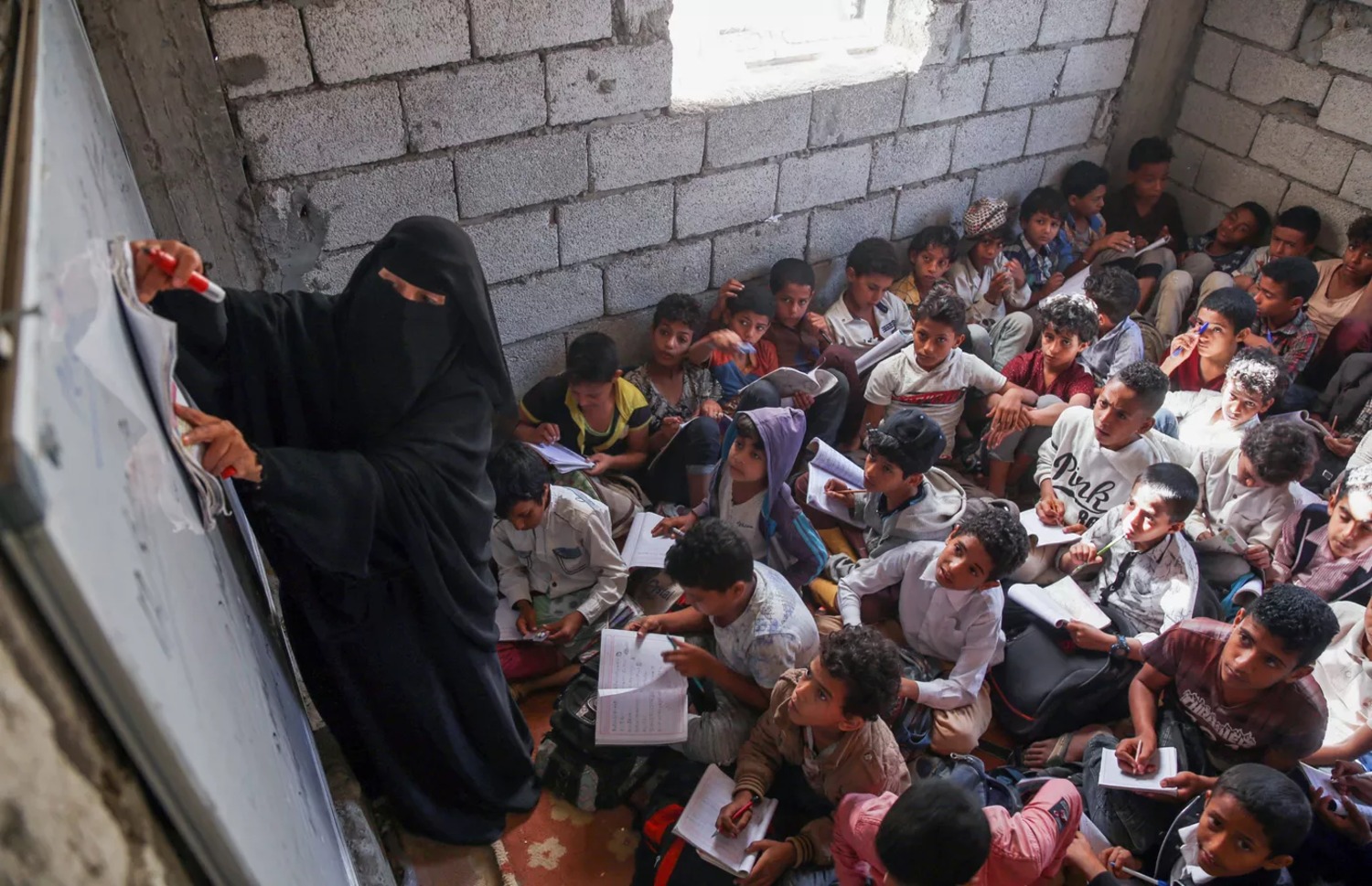


Barran Press
On September 18, 2024, Peter Hawkins, the UNICEF representative in Yemen, strongly refuted accusations made by the Houthi group, classified as a terrorist organization, claiming that the organization and its partners are complicit in destroying education in areas under Houthi control. Hawkins described these allegations as "baseless."
In a statement, Hawkins clarified, "UNICEF’s response to the claims of destroying education is clear: they are not true." He explained that UNICEF's basic education program focuses on rehabilitating schools to provide quality education for the 4.5 million children currently out of school.
Hawkins warned that the large number of out-of-school children represents a "ticking time bomb," indicating that Yemen could face a generation in five to ten years that may be illiterate and lacking essential life skills, exacerbating future challenges for the nation.
He reiterated UNICEF's commitment to ensuring that schools remain operational, rehabilitating those damaged by conflict, and facilitating the return of teachers—especially female educators—while encouraging children, particularly girls, to resume their studies after summer breaks.
The UNICEF representative highlighted a significant dropout rate among Yemeni girls transitioning from middle to secondary school, often due to marriage or domestic responsibilities. He emphasized the importance of ensuring girls complete their education through 12th grade, as this opens up future opportunities and delays early marriage.
Hawkins identified the ongoing conflict as the primary cause behind the high number of out-of-school children, which has damaged schools, divided the country, and created severe livelihood challenges. He noted that many children leave school to address pressing issues at home or work in agriculture.
Despite these challenges, Hawkins praised the resilience of Yemeni children and the dedication of families to education. He recounted seeing children studying in makeshift schools with no walls, sitting on wet ground, driven by their desire to learn.
He shared an anecdote about observing 12 girls in the 11th grade studying outdoors under a tree, showcasing their determination despite significant obstacles. However, he acknowledged the dire conditions surrounding poverty, inadequate facilities, and teacher shortages.
Regarding UNICEF's support for Yemen's education system, Hawkins stated that the assistance provided is insufficient. The organization aims to rehabilitate schools and ensure that teachers, especially volunteers, are motivated to teach in the absence of a structured salary and management framework.
Hawkins mentioned ongoing efforts to work with impoverished communities and those hosting large numbers of displaced individuals. "We provide informal education as a bridge to formal schooling, allowing them to transition to official education after a year or nine months," he explained.
To urgently reintegrate Yemeni children into schools and restore their right to education, Hawkins stressed the need for the internationally recognized government and local authorities in Sana'a to reconsider their strategies to enhance primary and secondary education access for all children.